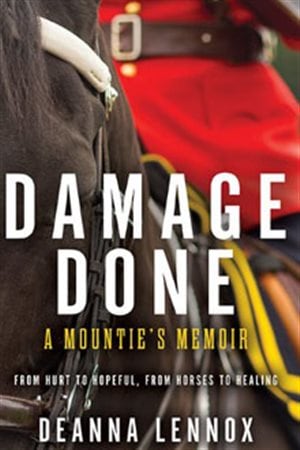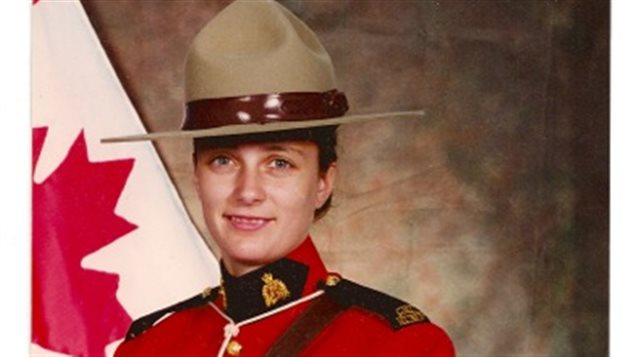She almost didn’t do it, but Deanna Lennox felt compelled to tell her story to combat the stigma around operational stress injuries in first responders and mental health problems in general. Her memoir is called Damage Done: A Mountie’s Memoir and tells about the abrupt end to her cherished career.
Lennox became a Mountie—an officer with the national police, the RCMP in 1996 in a small detachment in western Canada. After several years of service she was called to a motor vehicle accident involving a moose. The animal had to be put down. Lennox was not wearing any protection and the shot gun blasts were close enough to cause significant and irreversible hearing loss.

‘It was devastating’
“That abruptly and unexpectedly ended my operational career,” says Lennox. “I was very much attached to my identity as a police officer. I didn’t even fathom or couldn’t even imagine what I would be beyond that.
“When I was told that I could no longer wear my uniform it was devastating and went into a major depression. It was during that depression, during that low, that I could not, I didn’t have the energy to suppress the memories and the experiences that I had during my career. Some of the more disturbing memories started to bubble up to the surface.”
ListenHelp from the Canadian Human Rights Commission
After informing her superiors about her difficulties, Lennox did not feel supported by the RCMP. In fact, she felt as though she had to “fight a battle” to save her job. “It was difficult and frustrating,” said Lennox and eventually she turned to the Canadian Human Rights Commission to get redress.
First responders often face the same kind of response when they suffer operational stress, says Lennox. “With people who are in these professions it’s very much the culture that it is not acceptable to acknowledge that you have these types of injuries. It’s seen as a weakness. It’s seen as a career-ending decision if you decide that you need help.”
‘I was no longer useful’
“Lots of times when you have these types of injuries (such) that you can no longer serve the organization in a way that you intended, you’re very much… I equate it to being tossed out…I felt that now that I was broken I was no longer useful.”
Lennox says that is a shame and organizations would do better to give employees the tools to help them recover and build resiliency. They then could help others going through the same difficulties.
‘Greater understanding…compassion’ needed
“There has to be a greater understanding and a greater sense of compassion,” says Lennon. “The RCMP is just one example of how really mental health is dealt with overall in the country. There’s lots of work to be done.”








For reasons beyond our control, and for an undetermined period of time, our comment section is now closed. However, our social networks remain open to your contributions.